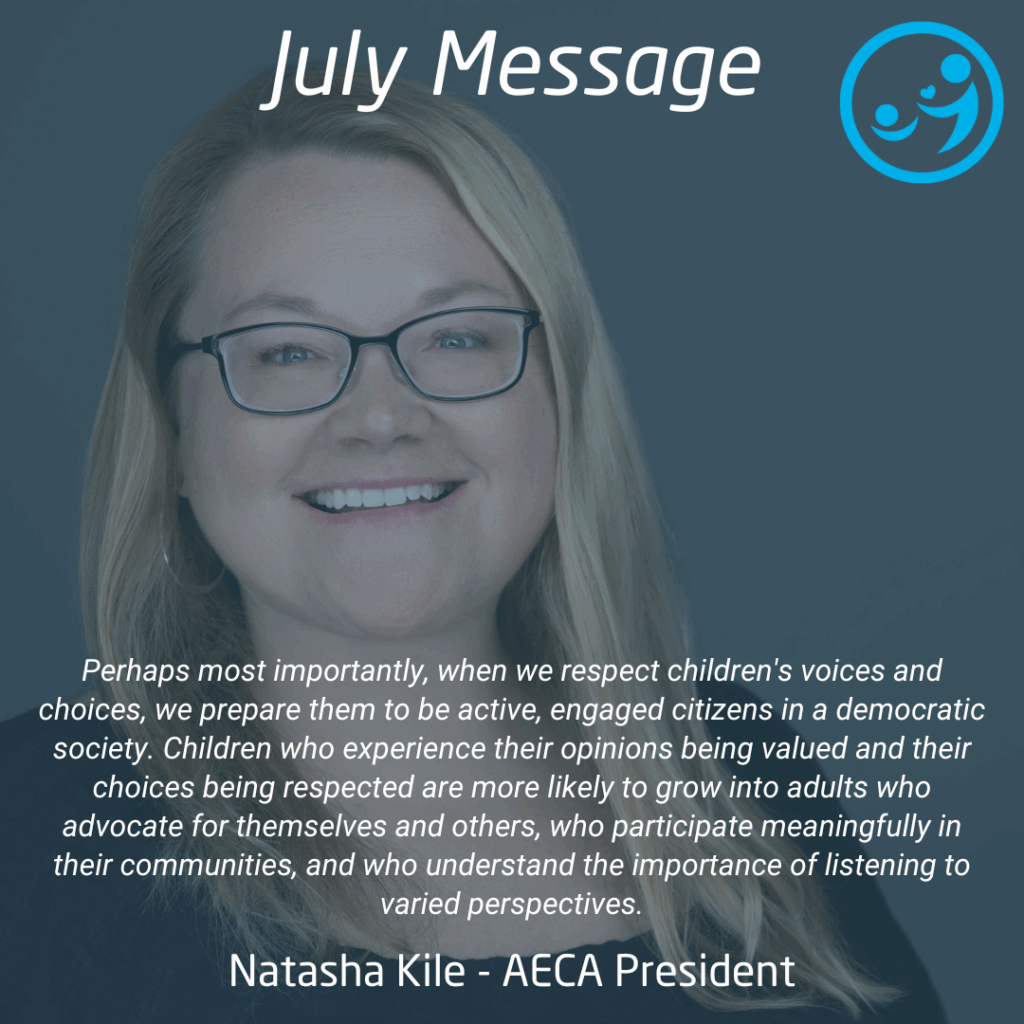
Honoring the Voice Within: Why Children’s Choices Matter More Than Ever
As educators, administrators, and advocates in early childhood education, we stand at a critical juncture. In a world that often views children as empty vessels to be filled or clay to be molded, our profession has the profound responsibility to champion a different truth: that children are whole human beings whose voices deserve to be heard, respected, and valued. When we listen to children, we discover that they are natural philosophers, keen observers, and creative problem-solvers. They bring fresh perspectives that can transform our understanding of teaching and learning.
Respecting children’s voices begins with recognizing their inherent dignity and capability. This means understanding that their thoughts, feelings, and ideas have value. When we honor their voices, we send a powerful message: “You matter. Your thoughts are important. You have something meaningful to contribute.”
Providing meaningful choices in early childhood settings is not about creating chaos or abandoning structure. Rather, it’s about recognizing that children learn best when they have agency in their experience. When we offer choices – whether in selecting books, choosing their activities, or deciding how to solve playground conflicts – we foster critical thinking, decision-making skills, and self-confidence.
Research consistently shows that children who experience autonomy in their learning demonstrate higher levels of engagement, creativity, and intrinsic motivation. They develop the executive function skills necessary for future academic success and become more capable of self-regulation.
Perhaps most importantly, when we respect children’s voices and choices, we prepare them to be active, engaged citizens in a democratic society. Children who experience their opinions being valued and their choices being respected are more likely to grow into adults who advocate for themselves and others, who participate meaningfully in their communities, and who understand the importance of listening to varied perspectives.
As leaders in early childhood education, we must be intentional about creating environments where children’s voices are not just heard but actively sought. This requires us to examine our own biases, to question traditional power structures, and to courageously advocate for practices that truly serve children’s best interests.
We must train our educators to be skilled listeners, to ask open-ended questions, and to create spaces where children feel safe to express their authentic thoughts and feelings. We must design curricula that invite children’s input and build upon their natural curiosity and interests.
When we commit to respecting children’s voices and choices, we make a promise to the future. We promise to raise a generation that values dialogue over domination, collaboration over control, and understanding over judgment. We promise to nurture young people who will enter the world with confidence in their own worth and respect for the worth of others.
This is not always the easy path. It requires patience, flexibility, and a willingness to share power with those we serve. But it is the right path—one that honors the extraordinary potential within every child and recognizes that the smallest voices often carry the most profound truths.
As we continue our vital work in early childhood education, let us remember that every time we listen to a child, every time we honor their choice, we are not just supporting their development – we are investing in a more just, compassionate, and democratic future for us all.
The children in our programs today will be the leaders, parents, and citizens of tomorrow. Let us ensure they remember what it felt like to be truly heard, deeply respected, and genuinely valued. In doing so, we give them the greatest gift we can offer: the knowledge that their voice matters, their choices have power, and their humanity is sacred.
Share your stories with me at president@arkansasearlychildhood.org. Your voice and expertise matter tremendously.
Take care,

Natasha Kile
President of AECA
Connect with me at president@arkansasearlychildhood.org

Recent Comments